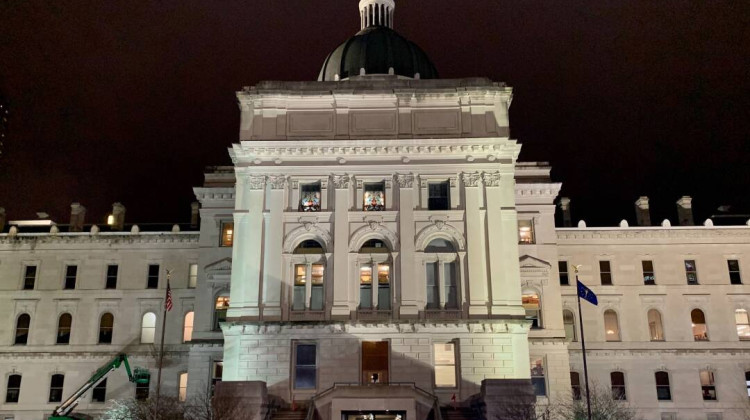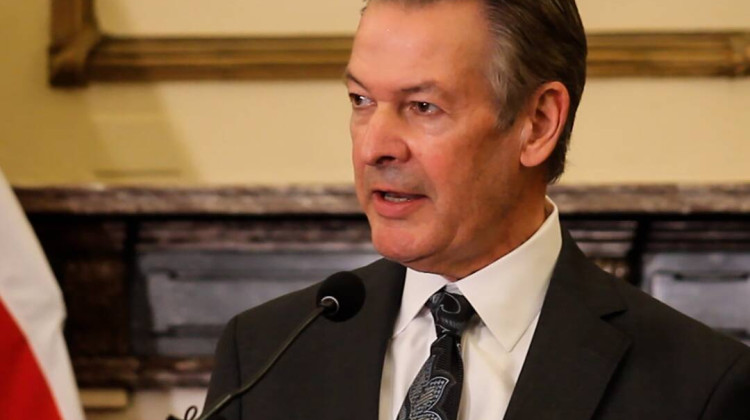
Many rural counties in Indiana lack public transportation for their residents, but some counties have created innovative solutions to combat this.
Courtesy of Lifetime ResourcesMany rural counties in Indiana lack public transportation for their residents, but some counties have created innovative solutions to combat this.
Erin Thomas is the executive director of Lifetime Resources. It’s a collection of programs helping residents in five rural counties: Ripley, Jefferson, Dearborn, Ohio and Switzerland maintain their independence.
The organization offers Catch-a-Ride, a service that allows residents from all five of counties (and Decatur County) to request rides within any of these areas.
Thomas said while the organization generally focuses on older adults and those with disabilities, its ride-sharing program is open to all.
“We are currently funded through something called Section 5311, which is funding for rural public transportation,” she said. “So while we, as an Area Agency on Aging, are primarily focused on older adults and individuals with disabilities, this program did expand us out to the general population.”
Thomas said the program is especially important for maintaining self-sufficiency in a rural area.
“Our mission is working together to provide services that help people maintain their independence,” she said. “And we felt that this was a really important program in doing that. For anyone that you talk to, in a rural area, the biggest barrier to getting medical care, or, you know, being able to do anything is transportation.”
Thomas said this program is different from a fixed route service.
“We do take people to medical trips – that's a big piece of it. But we also take them to work, we take them to grocery shop, we take them to visit a friend, it doesn't matter,” she said. “And we provide our service on a first-come-first-serve basis, and we take advanced reservations.”
Join the conversation and sign up for the Indiana Two-Way. Text "Indiana" to 73224. Your comments and questions in response to our weekly text help us find the answers you need on statewide issues.
The program has 32 vehicles: 11 minivans and 21 small transit vans. All vehicles are wheelchair accessible.
Thomas said the ride service is a $2 flat fee for the first five miles, and then an additional 25 cents per mile. The reduced fare for the service starts at $1 for the first five miles and an additional 25 cents per mile. There are also options for Medicaid to cover rides, requiring these providers to reach out to Lifetime to request these services for their clients.
The program’s 5311 funding requires a 100 percent match. Thomas said the organization has used unique ways to keep up this funding.
“We have our Medicaid and managed care contracts,” she said. “We have contracts with the local sheltered workshops, we are constantly applying for grants through community foundations, the United Way, the united fund and we get support from local governments – so the cities, the towns, even the townships in some cases.”
Thomas said there have been some setbacks for the program since COVID-19 – particularly staffing shortages.
“Even those [staff] we were able to maintain had periods of quarantine, which were sort of debilitating,” she said. “And it's not as though you can just train a driver quickly, it's a lengthy process to bring on drivers into this program.”
This process includes getting a physical from IU Health (which is about a two-hour drive from any of the counties), first aid and CPR certification, two days of orientation and several other trainings.
The only requirements for drivers are that they are over age 25 and have a clean driving record. However, Thomas said it is generally retirees who are interested in driving for the program.
Thomas said these kinds of transportation systems in rural communities rely heavily on community members and other supports.
“Rural systems rely a lot on volunteers and community partnerships and just being as creative as possible and good stewards of the money,” she said.
To request a ride through this service, individuals can contact Lifetime Resources through their website.
Contact reporter Violet at vcomberwilen@wfyi.org or follow her on Twitter at @ComberWilen.
 DONATE
DONATE









 Support WFYI. We can't do it without you.
Support WFYI. We can't do it without you.